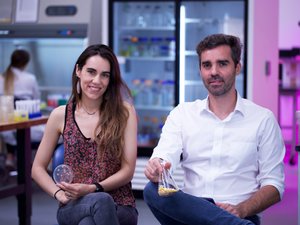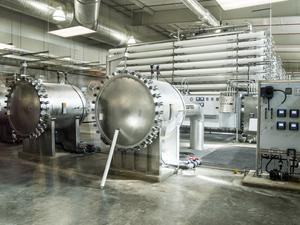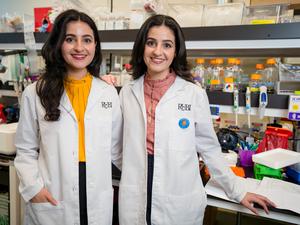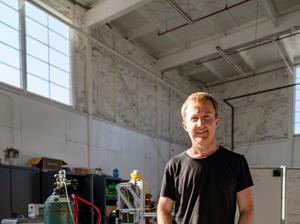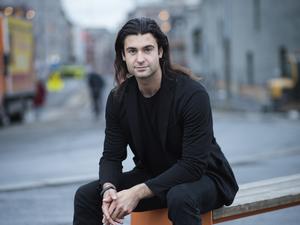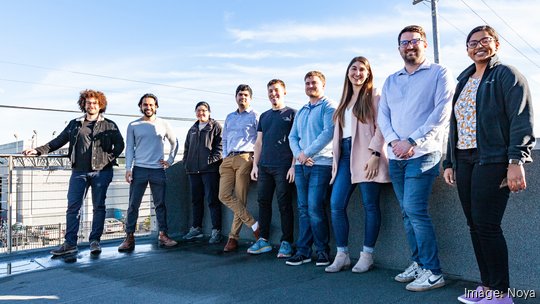
A San Francisco-based climate tech startup has raised new funding and pivoted its carbon capture strategy in order to speed up adoption and benefit from federal incentives.
CEO Joshua Santos and CTO Daniel Cavero founded Noya in 2020 to develop carbon capture technology. Their original idea was to retrofit industrial cooling towers with hardware that would capture carbon dioxide emissions in water tanks, and then instead of sequestering the gas in long-term storage, the purified waste product could be resold for industrial manufacturing.
But in recent months, the company pivoted to direct air capture to accelerate the amount of carbon dioxide they can pull out of the atmosphere and potentially benefit from federal incentives that will be available through the Inflation Reduction Act, which President Joe Biden signed in August.
The IRA increased federal tax credits for direct air capture projects to $180 per ton from $50, and lowered the qualification threshold to capturing 1,000 tons annually, down from 100,000 tons.
The cooling tower plan would have taken more time to implement, Santos told me, because it required working with large, risk-averse operators.
"We switched to the current strategy to allow us to move faster in getting the deployment out into the world," Santos said, and "have essentially taken same technology that we were building to capture CO2 using cooling tower retrofits, and we're just building it in a bigger way."
Instead of pulling CO2 emissions into water tanks before being filtered and purified into a gaseous form, the new strategy captures CO2 directly from the atmosphere. The resulting CO2 is then stored deep in the ground by Noya's partners.
Eventually, Noya intends to resell some of the carbon emissions that it captures, like originally intended, but for now, the company is focused on long-term storage, or sequestration, Santos said.
On Tuesday, Noya announced that it raised an $11 million Series A round led by Union Square Ventures and Collaborative Fund, and also included Lowercarbon Capital, Fifty Years, MCJ Collective, EQT Foundation, Climate Capital and Nexwell Group, as well as an unnamed university endowment.
The new capital brings Noya's total funding to just under $17 million.
The company has been testing its carbon capture filters at its San Francisco office and is gearing up for a pilot project that is expected to launch this year, Santos told me.
By the end of the year, Noya will have the capacity to capture one ton of carbon emissions per year and the company is aiming to reach 1 million tons annually by 2030, Santos said, and eventually billions of tons annually.
"Our vision for the future is where we're operating full scale air mining facilities where we're taking CO2 and other contaminants out of the atmosphere, and then creating them into some sort of societal or commercial goods," Santos said. It "essentially makes us like a waste management company for the air, which is essentially what CO2 is. A lot of waste has value, and the planet's trash will become our treasure as we scale."
Some of its customers are prepaying for Noya's carbon credits while others will pay when the credits are available, Santos told me.
The new funding will allow the company to open a new 20,000-square-feet testing and manufacturing facility in the East Bay, and at least double the size of its team, which currently has 11 employees.
The IRA earmarked $369 billion for climate change mitigation efforts. Exactly how much might be spent on direct air carbon capture projects is unclear. Estimates range from $3 billion to $52 billion over the first 10 years, according to Bloomberg News.
In the U.S., greenhouse gas emissions increased 5% in 2021 compared to 2020 when emissions declined due to Covid-19 restrictions on travel and other activities, according to the EPA.
